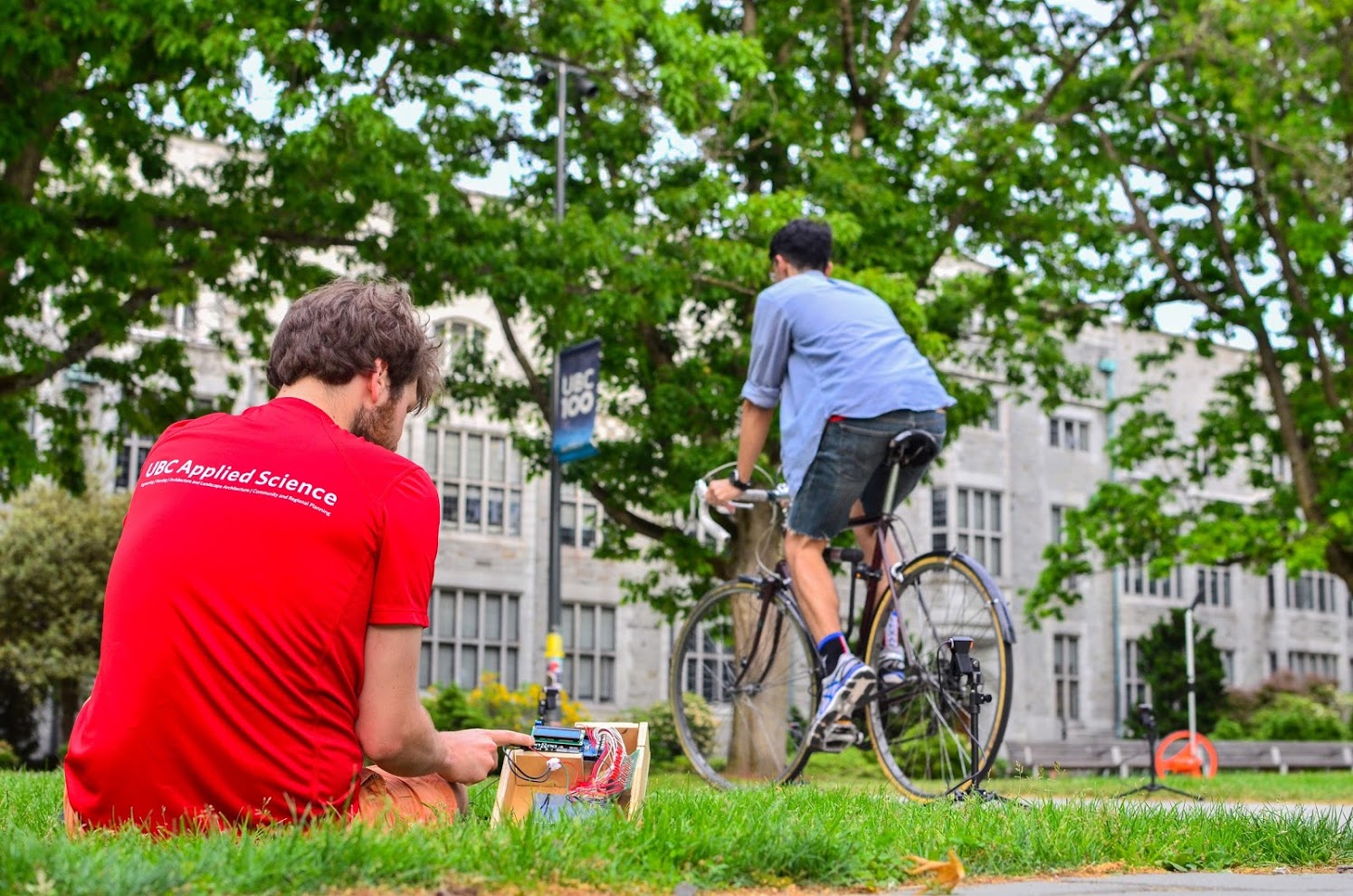
For bicycles and other human powered vehicles, it is relevant to understand the links between energy expenditure and travel behavior (e.g., route and speed choices) as well as travel impacts (e.g., pollutant intake/uptake and health effects). Energy expenditure and breathing rate are related to the resistance forces that bicyclists must overcome, in particular rolling resistance (i.e. the resistance due to friction between wheels and pavement) and air resistance (i.e. drag or aerodynamic resistance).
In this project, we aim to quantify rolling and air resistance parameters for a wide range of urban bicyclists, and connect those parameters to other traveler characteristics (bicycle type, trip purpose, bicycling frequency, etc.). We first develop and validate a field bicycle “coast-down” test in which parameters of interest are extracted from observed deceleration data, and then deploy the test during an intercept survey.
Study results are used in behavioral travel models and in estimation of pollutant inhalation, physical activity, and health impacts during transportation system analysis and planning.